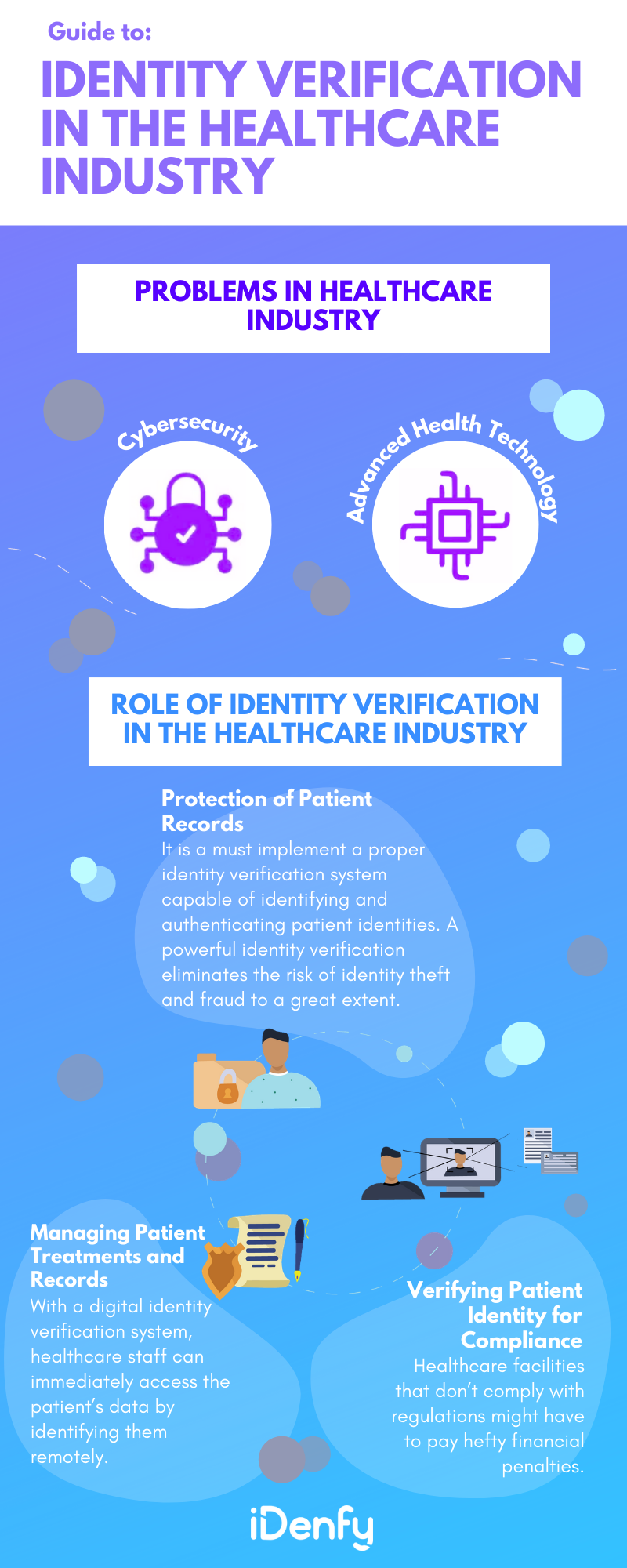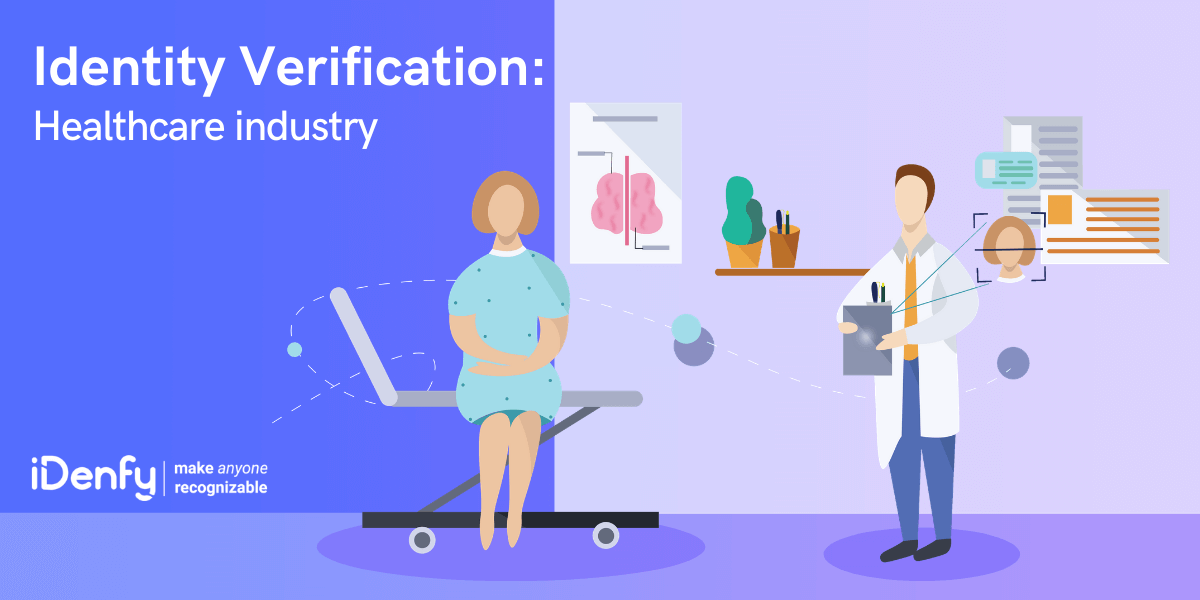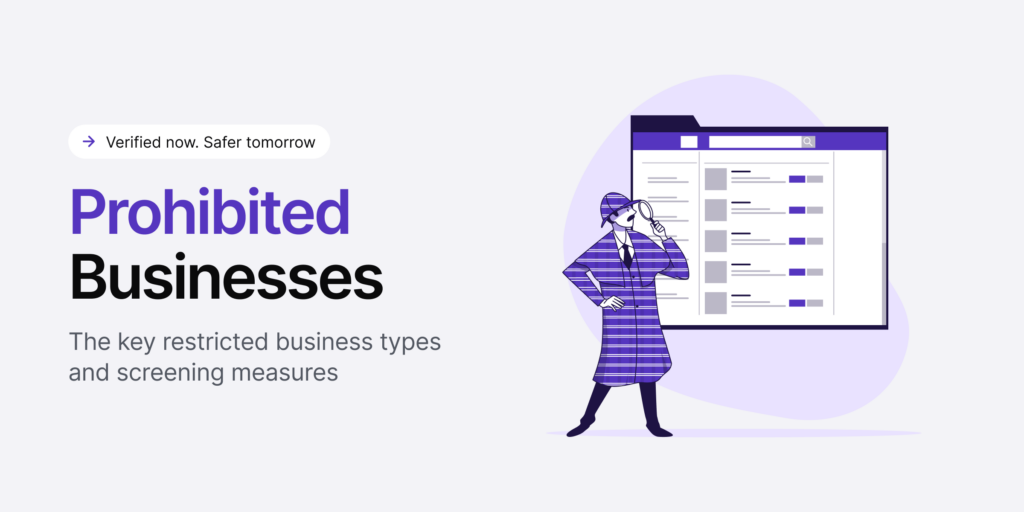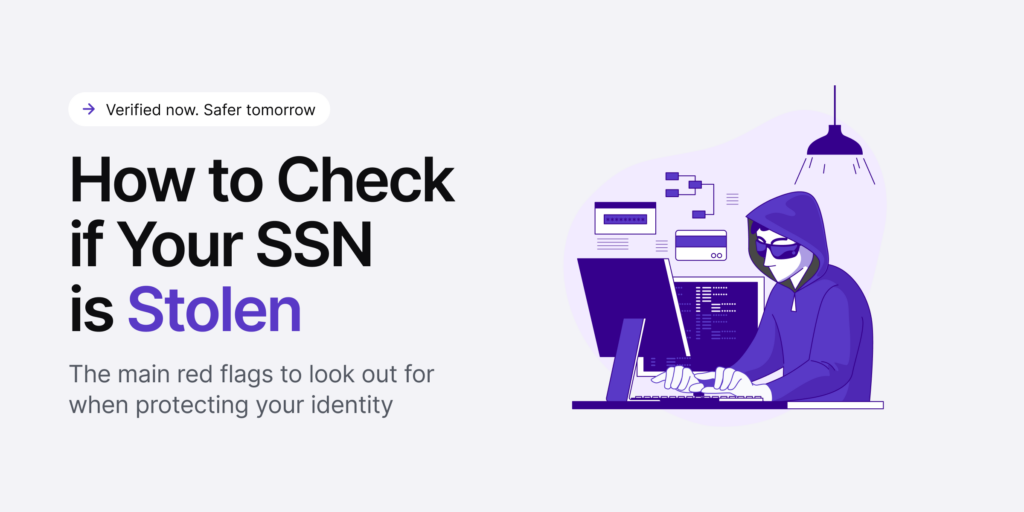Identity verification in the healthcare sector helps prevent identity theft by ensuring that patients’ identities are accurately verified before accessing sensitive medical records or receiving healthcare services. This way, new Know Your Customer (KYC) and Know Your Patient (KYP) measures can reduce the risk of unauthorized individuals impersonating patients and gaining access to personal information.
Otherwise, failure to accurately identify patients might result in a diagnosis and medication errors. That could be life-threatening. So, it’s clear that verifying patients, like in any other industry, helps maintain data confidentiality and protects patients from potential fraud or misuse of their medical records.
Without further ado, let’s find out how online identity verification can help healthcare officials provide better and more secure healthcare services.
How Did the Healthcare Industry Evolve?
The history of healthcare is as old as human history. However, the methods of treating illnesses have been different in different periods. In ancient times, home remedy was a popular way to cure various diseases using certain spices and vegetables. However, actual medicinal professionalization started in the 18th century.
Until then, physicians could not diagnose and treat various common ailments. Thanks to various scientific, chemical, biological, and technological advancements provided doctors with the means to treat different illnesses in the early 19th century.
Today, the healthcare industry has reached an entirely new level, and technology plays a vital role in its growth. From ancient pharmacology and medical practices to modern-day advanced treatment, the industry has seen significant shifts and has come a long way.
Nowadays, healthcare centers work with numerous tech gadgets and machines that help in various healthcare and life-saving procedures. Technologies like artificial intelligence are transforming the entire concept of patient care. Some significant technological advancements in the healthcare industry include electronic health records, telemedicine, portal technology, self-service kiosks, and remote monitoring tools.
While the healthcare industry has reached a high level, it isn’t free from problems. Technological advancement has brought various challenges to the industry as well.
What are the Main Security Issues in the Healthcare Industry?
The rise of telemedicine and online healthcare platforms in recent years has presented new challenges for identity verification. Robust verification systems have become necessary to verify the identities of patients accessing virtual healthcare services securely.
We review some technological advancement-related security issues in the healthcare industry below:
#1 Data Breaches
With the increased adoption of electronic health records (EHRs) and interconnected systems, healthcare organizations face a higher risk of data breaches. Cybercriminals target valuable patient data, such as personal information, medical history, and insurance details, for financial gain or identity theft.
According to the Protenus Breach Barometer, hackers breached 15 million patient records in 2018. It’s nearly triple the number of reported incidents in 2017. In 2020, a ransomware attack on the Florida Orthopedic Institute breached 640,000 patients’ data, as reported by HHS on July 1, 2020.
According to HIMSS Europe, data protection in the healthcare industry is not up to the mark, which is why identity fraud happens.
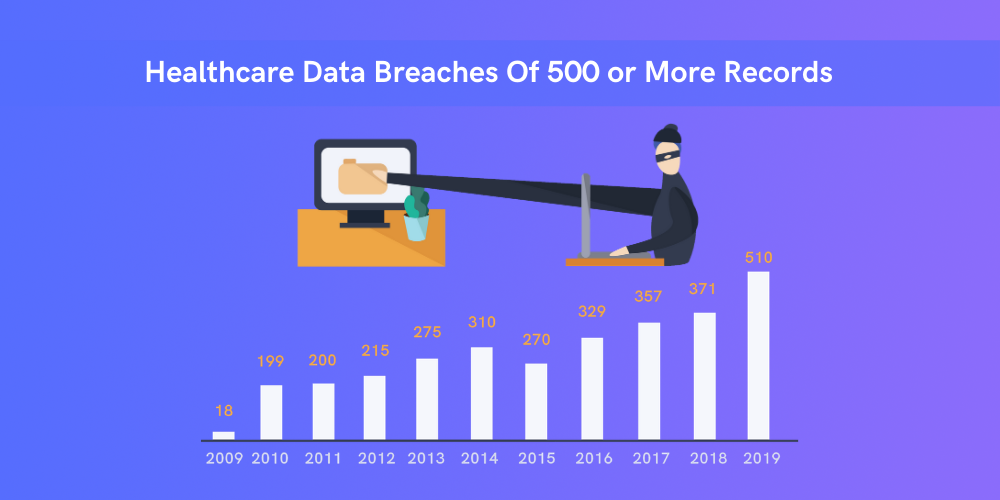
In the following illustration, you can see an upward trend in data breaches from 2009 to 2019.
#2 Phishing Attacks
Phishing remains a common tactic used by cybercriminals to trick healthcare employees into revealing sensitive information or clicking on malicious links, potentially leading to data breaches or malware infections.
Here are a few examples showcasing how criminals use various phishing tactics on healthcare organizations:
- Replica Login Pages. On the fake website, the hacker sets up a replica of the app’s login page, carefully imitating the app’s branding and design. Unsuspecting users, believing they are accessing the genuine app, enter their login credentials (username and password) on this fake login page.
- Fake Emails and SMS. The hacker creates a convincing fake email or SMS that appears to be from the digital healthcare appointment app provider, notifying users of an urgent update or an exclusive offer. The message may include the app’s logo and mimic the style of legitimate communication.
- Malicious Links. The email or SMS contains a link leading to the app’s update page or a special offer page. However, this link redirects users to a fake website controlled by the hacker, designed to look like the app’s legitimate login or update page.
Related: Fraud Detection — What You Need to Know in 2024
#3 Lack of Advanced Technology
Many healthcare organizations have long-established systems that were implemented before the widespread adoption of digital technologies. These legacy systems may lack the necessary infrastructure to support modern verification methods.
On top of that, the healthcare industry is known for being cautious about adopting new technologies and processes due to concerns about disruption and patient safety. Resistance to change can lead to the continued use of traditional verification methods.
That’s why adopting new technology is another significant challenge healthcare facilities face today. Software applications such as patient administration systems, laboratory information management apps, and appointment scheduling software use machine learning and artificial intelligence. To harness advanced healthcare technology fully, medical staff must know how to connect to a secure healthcare environment. An identity verification system ensures the security of a patient’s medical record.
Related: Top 5 Identity Verification Measures
Why the Healthcare Industry is the Prime Target for Fraudsters
According to Forbes, in 2016, it breached nine times more medical than financial records. While data breaches in other industries like information technology, manufacturing, and financial services have declined over the years, they have skyrocketed in the medical industry.
Why is it happening? Why is the healthcare industry such a big target? The reason is that private medical data is worth money to cyber attackers. Hospitals and healthcare facilities store incredible patient data that attackers sell quickly.
That said, the healthcare industry is a lucrative target for fraudsters, particularly concerning identity theft and data breaches, due to several factors:
- Abundance of Sensitive Information. Healthcare organizations collect and store a vast amount of sensitive patient information, including personal identification details (e.g., names, addresses, birthdates), medical history, insurance information, and financial data. This treasure trove of data provides ample opportunities for identity thieves to commit fraud.
- Value of Healthcare Data on the Black Market. Stolen healthcare data is highly valuable on the black market because it can be used for various illegal purposes, including insurance fraud, prescription drug diversion, and even identity trafficking. Criminals can sell the data to other fraudsters, amplifying the impact of a single data breach.
- The Complexity of the Healthcare Ecosystem. The healthcare industry involves numerous stakeholders, including hospitals, clinics, insurance companies, pharmacies, and medical device manufacturers. Each entity manages vast amounts of data, and securing the entire ecosystem is challenging, leaving weak links for fraudsters to exploit.
According to the head of investigations at the HHS Office, Gary Cantrell, “Hackers prefer to steal patient data as they are like a “treasure trove of all this information about you.” Meanwhile, the medical record contains a patient’s full name, address history, financial information, and even a social security number.
Other Reasons Why Fraudsters Target Healthcare Organizations
#1 Medical Devices are Attractive Targets for Bad Actors
Most medical equipment types were designed by manufacturing firms for one purpose – like dispensing drugs or monitoring a patient’s health. They’re generally not made with data security in mind.
On top of that, healthcare data breaches are not always immediately detected, providing fraudsters with extended periods to exploit the stolen information. Unlike credit card fraud, which is usually detected quickly, medical identity theft can remain undetected for an extended period, allowing criminals to continue their fraudulent activities.
Related: How to Check if Someone Is Using Your Identity?
2# Healthcare Facilities Access Data Remotely, Opening More Possibilities for Cyberattacks
Nowadays, staff works collaboratively to offer the best treatment to every patient. However, working remotely from different devices might be risky, as not all devices are secured. With one compromised device, a hacker can access the network and steal all the crucial medical data.
And let’s not forget that the healthcare industry involves numerous stakeholders, including hospitals, clinics, insurance companies, pharmacies, and medical device manufacturers. Each entity manages vast amounts of data, and securing the entire ecosystem is challenging, leaving weak links for fraudsters to exploit.
Since healthcare information needs to be open and shareable to provide the best possible treatment, healthcare facilities must implement a robust identity verification solution. It significantly reduces the risk of online threats.
How Identity Verification Helps Protect Healthcare Providers
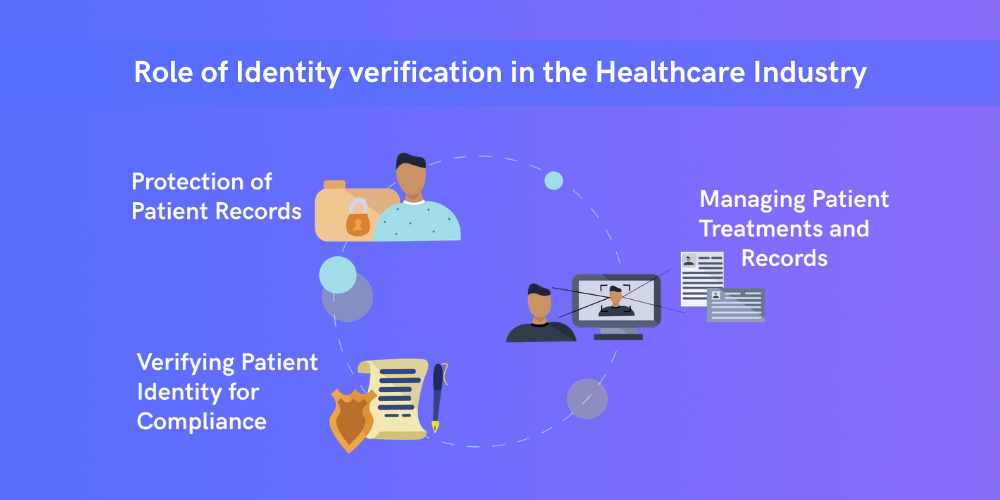
The challenges in the healthcare industry are innumerable. Undoubtedly, identity verification can resolve not all issues. Still, there are several ways in which digital identity verification can enable hospitals and healthcare providers to impart better yet secured medical services.
Here are the top use cases where identity theft shows major benefits for healthcare professionals:
✅ Safeguards Patient Records
Using antivirus and anti-malware systems is not enough. Healthcare facilities must implement a proper identity verification system to identify and authenticate patient identities. A powerful identity verification eliminates the risk of identity theft and fraud to a great extent.
Identity verification protects patient records in digital healthcare systems by ensuring that only authorized individuals with verified identities can access sensitive medical information, preventing unauthorized access or misuse of patient records, and maintaining data confidentiality and privacy. This helps safeguard patient data from potential breaches, fraud, or medical identity theft, enhancing the overall security and trustworthiness of the digital healthcare ecosystem.
✅ Manages Patient Treatments and Records
A proper identification and verification procedure allows healthcare providers to manage and access patients instantly. With a digital identity verification system, healthcare staff can immediately access the patient’s data by identifying them remotely.
That’s why identity verification helps manage patient treatments and records more efficiently by accurately identifying patients, streamlining the registration process, and reducing administrative errors. With verified identities, healthcare providers can access patients’ medical history quickly, ensure continuity of care, avoid duplicate records, and facilitate seamless information sharing, ultimately leading to improved treatment outcomes and better patient management.
✅ Verifies Patient Identity and Ensures Compliance
To counter these threats, the healthcare industry must invest in robust cybersecurity measures, regular security assessments, employee data protection training, and data privacy regulations compliance. Additionally, fostering a cybersecurity culture across the healthcare ecosystem is essential to safeguard sensitive patient information from fraudulent activities.
According to the EU’s GDPR privacy law, healthcare organizations serving patients from any of the 28 nations must familiarize themselves with the law to ensure compliance. In the United States, compliance regulations such as HITECH and HIPAA are there to verify patient identity.
Healthcare facilities that don’t comply with these acts might have to pay hefty financial penalties.
If you are a healthcare provider dealing with identity-related fraud, at iDenfy, we can help you onboard doctors, patients, and any healthcare specialists through both document and selfie verification, including white-labeling options and a custom KYC flow — all adapted to your platform and unique needs or jurisdictional requirements.
Book a free demo and see our identity verification solution in action.
This blog post was updated on the 12th of August, 2024, to reflect the latest insights.
